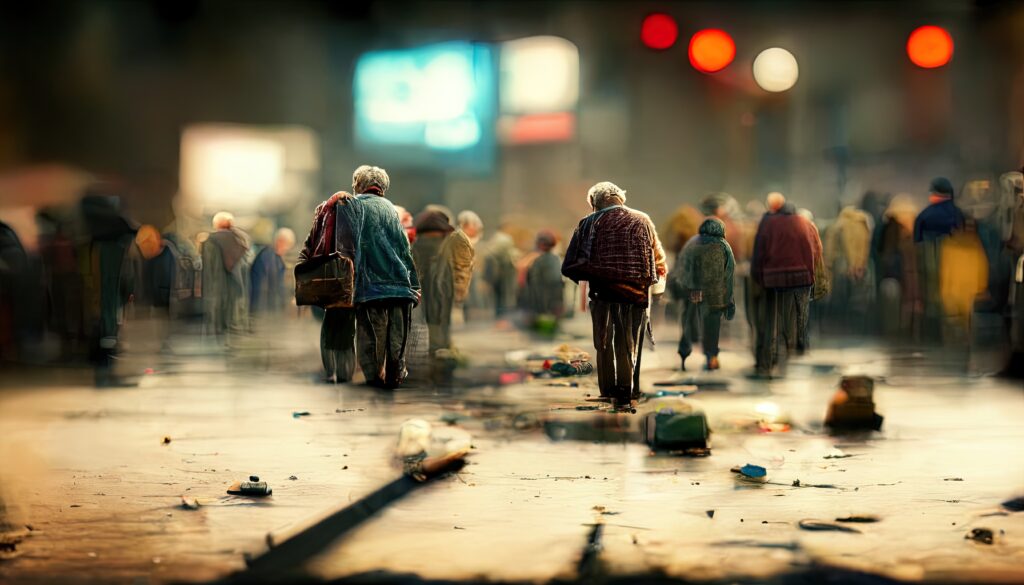
Blame the Rich
Oxfam – a “global organization that fights inequality to end poverty and injustice.”
The world’s five richest men have doubled their wealth since 2020 while “during the same period, almost five billion people globally have become poorer.”
In its annual inequity report, Oxfam alerts of “widening and extreme inequality.”
“As is often the case with Oxfam, the report is misleading,” warns Johan Norberg of the Cato Institute, and Gonzalo Schwarz, CEO of the Archbridge Institute.
One thing readers won’t get out of Oxfam’s report: global poverty is now at its lowest level ever recorded—8.6%, down from 29% in 2000.
According to Oxfam’s main source, the UBS/Credit Suisse Global Wealth Report, annual shifts in inequality have roughly canceled out, returning global wealth inequality to the same level as when the pandemic began. Most inequality indicators are at their lowest levels in a century.
Oxfam’s work has other flaws. By focusing only on the five richest men, it ignores the 24 billionaires who fell off Forbes’s famous list after losing a combined $43 billion between 2022 and 2023. In addition, the report fails to mention that the total number of dollar millionaires fell by 3.5 million last year, without even taking inflation into account. Absurdly, as Max Ghenis of PolicyEngine has pointed out, Oxfam calculates the rise in wealth of the five superrich from March 18, 2020, the low point of the Covid crash, while the group measures the decline for the five billion poor from 2019, before the downturn.
The authors maintain that beyond the misleading headlines and misuse of the facts, the real problem with Oxfam’s reports and proposals is that its focus is on the wrong issues.
- Oxfam look at wealth and poverty as a zero-sum story of inequality rather than the positive story of upward social mobility.
- Oxfam’s proposed solutions would make it harder for people to rise out of poverty.
“Inequality” has in recent decades become the preferred term for those looking to blame the rich for a nearly endless list of problems. The word doesn’t illuminate the causes of poverty—or prosperity. Far better to reframe the fight against poverty as a question of social mobility and human flourishing. If groups like Oxfam were to promote a positive and unifying view of social mobility instead of a negative and divisive view of inequality, they could help countless people develop the skills and personal characteristics necessary to pull themselves out of poverty.
What Doesn’t’ Work:
- Higher taxation for redistribution.
- Higher minimum wages or specific paid-leave mandates, doesn’t take into account the unintended consequences that such policies are likely to have on entrepreneurship.
- Business dynamism and labor-market flexibility. Pursuing such policies in the name of reducing income inequality can destroy opportunities for those at the bottom of the income ladder, which can lead to more inequality.
The authors explain in the WSJ how Oxfam’s policies “with the goal of reducing income inequity” can destroy the opportunities for those at the bottom of the income ladder, leading to more inequality. Oxfam’s shouldl focus on “expanding opportutnities for upward social mobility, particularly for those at the bottom.”
What Does Work:
In both wealthy and developing nations important steps can help assist economic growth and development
- A strong rule of law.
- Low levels of corruption.
- Opportunities for innovation.
- A dynamic ecosystem for entrepreneurship.
How Not to Thrive
Messrs. Norberg and Schwartz explain how easy it is to eliminate inequity: Make everyone poor.
But to help people escape poverty and to remove barriers to boost human flourishing, what’s needed is an increase in social mobility, a cause more difficult and more worthy of our attention.




